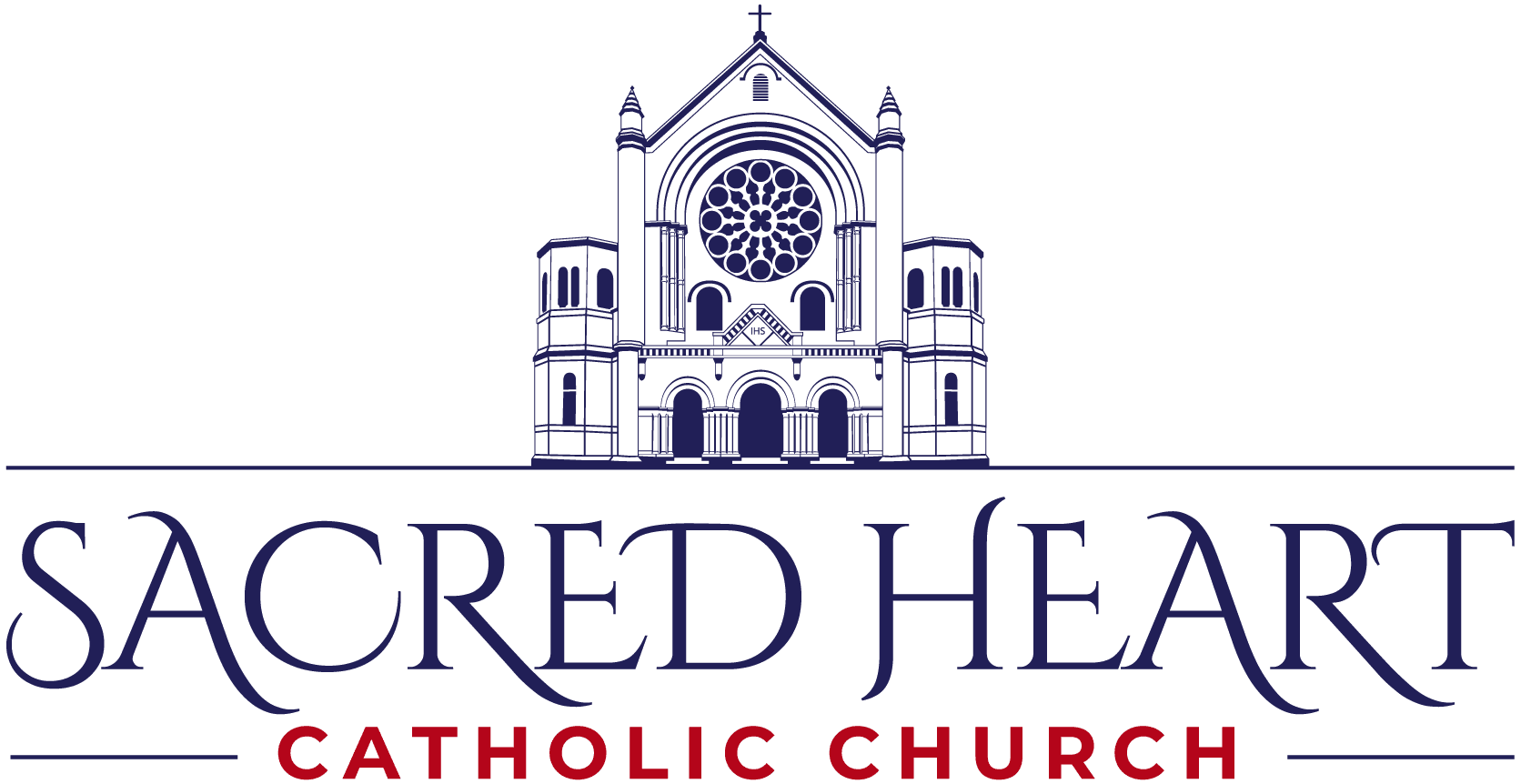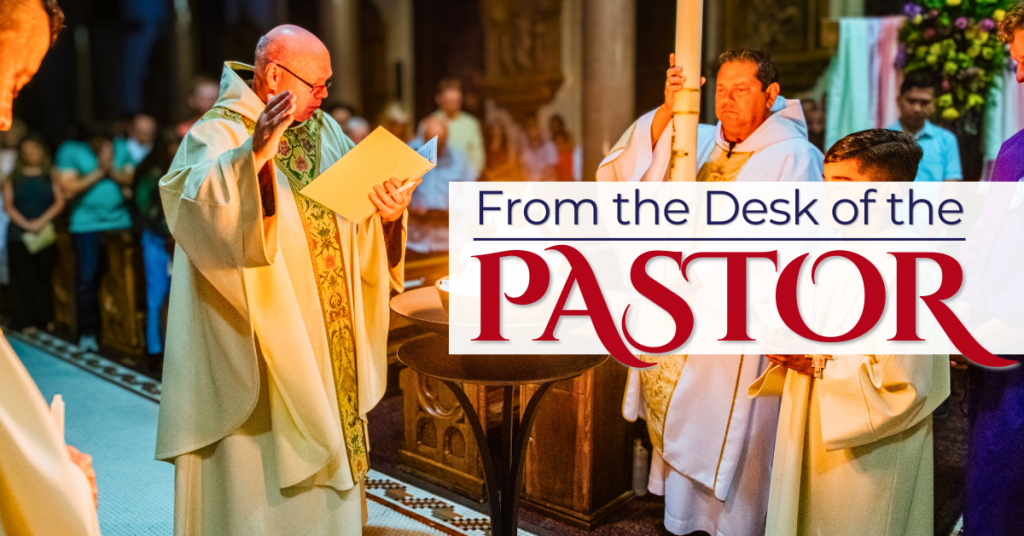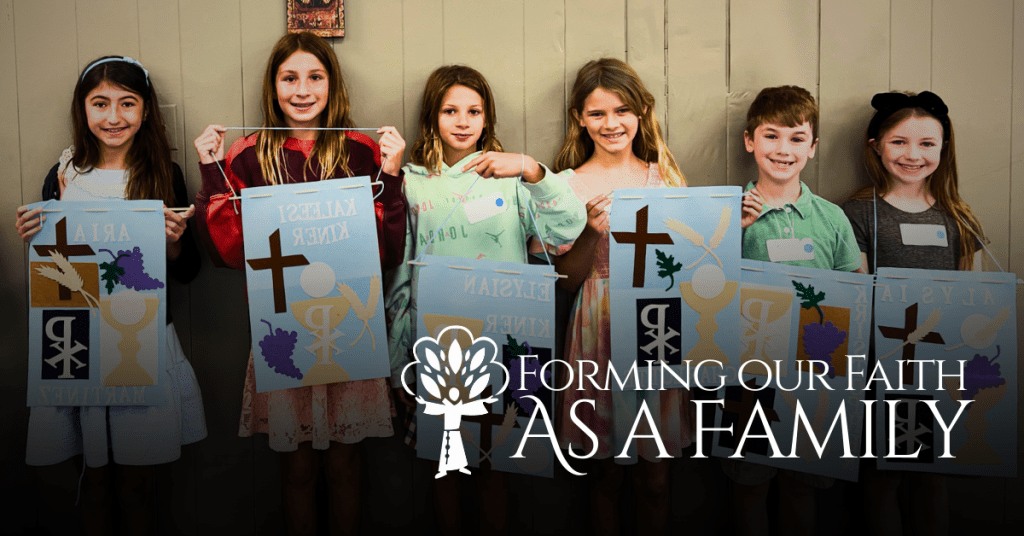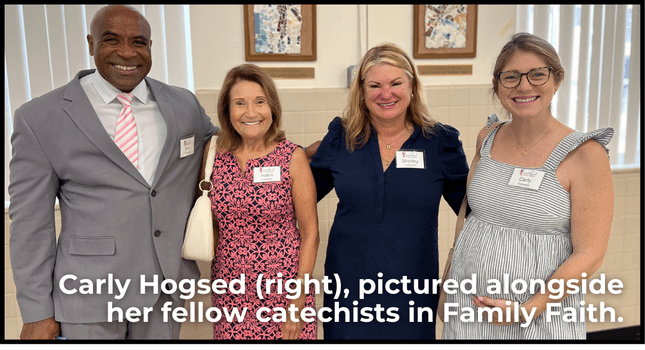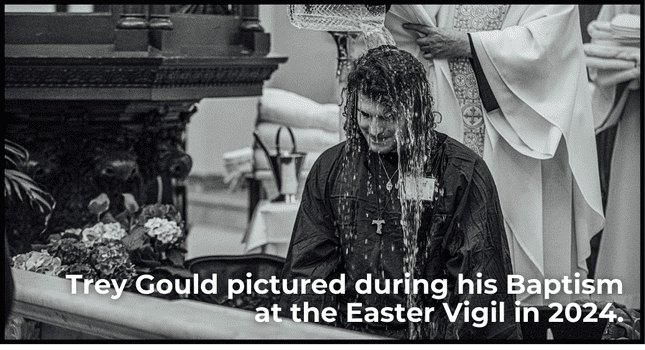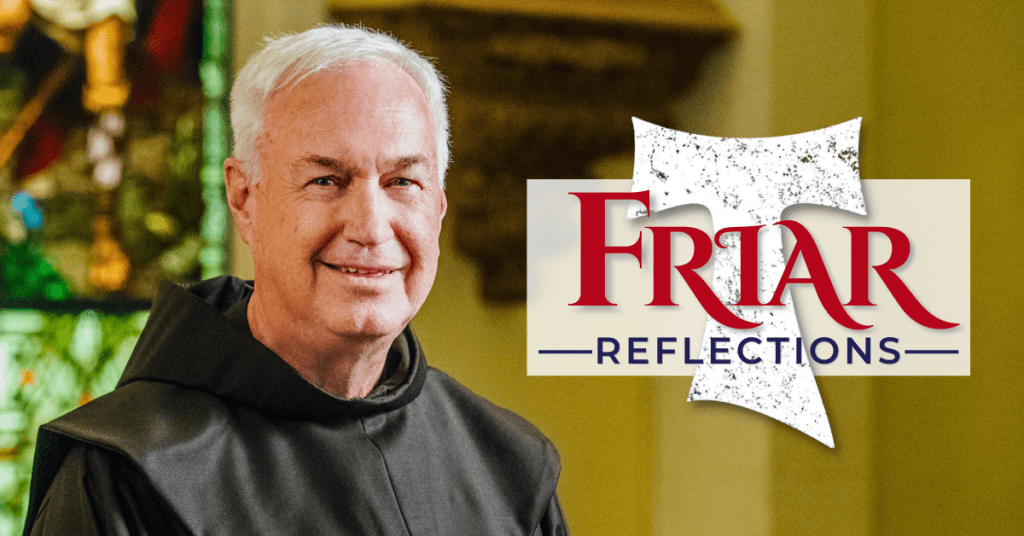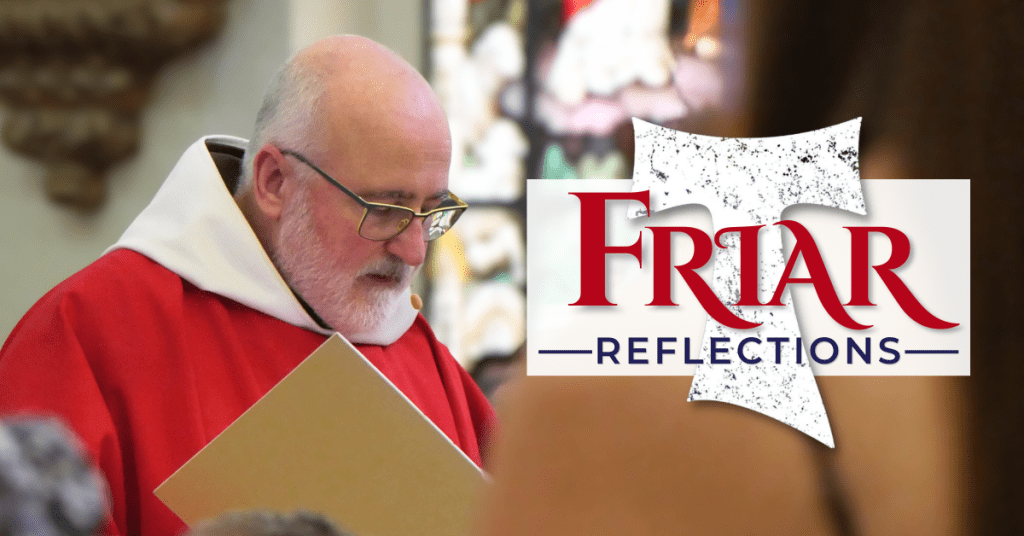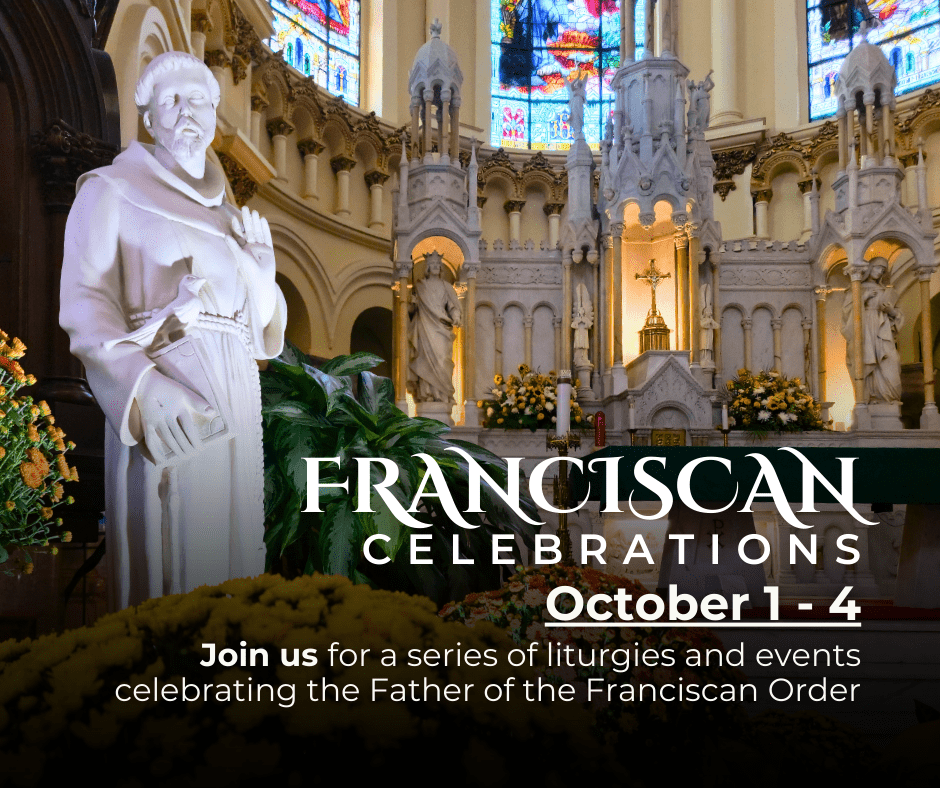
Each year on the evening of October 3, the Franciscan family throughout the world pauses to celebrate the solemnity of our Holy Father Francis’ Transitus, his passing over from this life to the next. St. Francis was not afraid of what would come at the end of his earthly life, choosing instead to recognize in that experience, not an end, but a transition from one way of living to another was to come.
The Friars of Sacred Heart invite you to join them for a series of Franciscan celebrations, reflecting on that devotion and understanding of creation, as we observe the Transitus and The Feast of St. Francis.
In a spirit of praise and thanksgiving, the Franciscan Order also celebrates the 800th anniversary of the composition of the Canticle of the Creatures by St. Francis of Assisi in 2025. The Canticle of the Creatures, also known as the Canticle of Brother Sun, is a poem written by St. Francis of Assisi shortly before his death.
Want to Learn More About the Transitus? Click Here
Tales of Wonder | Wednesday, October 1 | 7 p.m. | Church
In Marty Haugen’s musical Tales of Wonder, a Hawaiian village gathers around two story-tellers who relate some of the familiar and central stories of their faith – Creation, Job, Jesus, and the coming of the Spirit – primarily to the children, but also to the adults. Members of our parish choir, and children from the parish will participate in this uplifting performance which features musical renditions of salvation stories. The event is free to the public.
Blessing of the Animals | Thursday, October 2 | 5:30 to 7 p.m. | The Franciscan Center
The Franciscan Center (3010 N. Perry Ave.) once again plays host to our Friars blessing the animals of our local community as part of their annual “St. Francis Day.” Pets of all kinds and their owners will be blessed by the friars. This annual “Blessing of the Animals” for all furry, finned, and feathered friends is a Franciscan Tradition in celebration of St. Francis of Assisi, Patron Saint of animals and the environment. The event is free to the public.
Transitus of St. Francis | Friday, October 3 | 6:30 p.m. | Church
Every year, on the third evening of October, Franciscans ritually remember the passing of Francis of Assisi from this life during this liturgy, as a reminder to renew our own commitment to follow Christ in the way of the poor man of Assisi. Join the friars as they continue this tradition, and later for a reception with light refreshments in St. Francis Hall following the liturgy.
The Feast of St. Francis | Saturday, October 4 | Church
The Feast of the Father of our Order, St. Francis, will be celebrated at our scheduled vigil Mass, at 5:30 p.m. | Each of the Masses for the weekend will feature readings for the Feast.
More information on Tales of Wonder from Director of Music, Phil Jakob
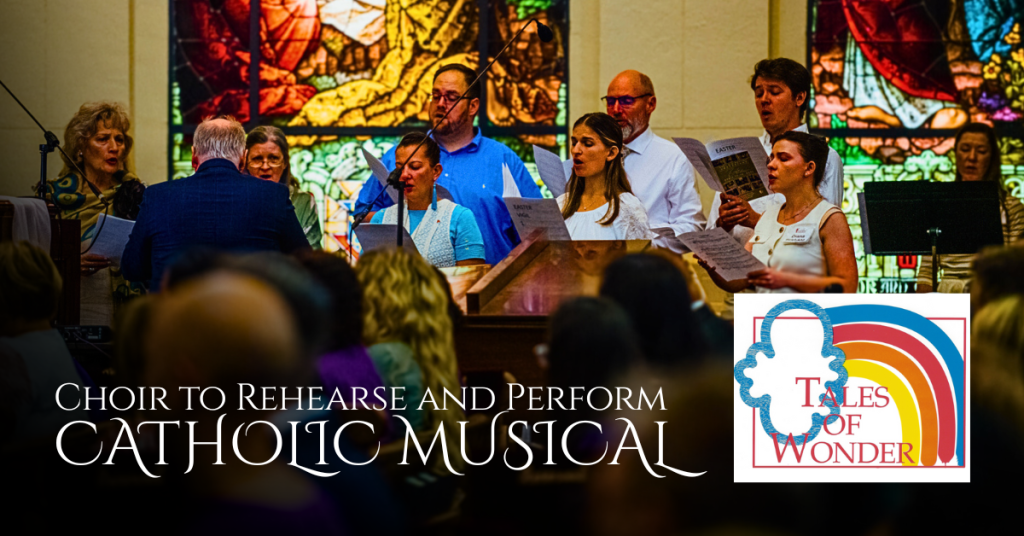
Building on the success of our recent “Aloha Summer Social,” we hope to return to Hawaii with a parish performance of Tales of Wonder, a musical conceived by Marty Haugen while visiting a parish in Hawaii. That parish was largely made up of native Hawaiians who had preserved story-telling as one aspect of their culture. To an extent, we do the same every Sunday as we gather to listen to the Word of God. In Tales of Wonder a village gathers around two story-tellers who relate some of the familiar and central stories of their faith – Creation, Job, Jesus, and the coming of the Spirit – primarily to the children, but also to the adults.
I was first introduced to Tales of Wonder by Marty Haugen himself when he visited London for anniversary celebrations of the St Thomas More Centre. Since then. I have directed performances at St Ignatius College, Enfield (1991), Parrs Wood High School (1995) at which the Headteacher remarked that we had delivered the entire religious education program in one night! When I became Director of Music for the Cathedral and Diocese of Hallam, performances followed at churches throughout the Diocese. Most memorable was a performance in Iona Abbey (1998) at which both Marty Haugen and I had been invited as guest musicians for the annual Music & Worship Week of the Wild Goose Resource Group. I directed, with Marty at the piano. The choir was made up of the 120 people signed up for the week and the children all came from Iona’s tiny primary school.
Can we rise to the challenge of performing it here at Sacred Heart? The proposed performance date is Wednesday, October 1 (updated from previous bulletin and email listings showing October 2), in the church. Our choir has already expressed its interest. Parents of children aged 8 and up, might your children be interested in being part of a children’s singing group? We would need to rehearse, of course, but please let me know if your children are interested by writing to me at pjakob@sacredheartfla.org
– Philip Jakob | Director of Music
This page will be updated with additional details for this year’s series of Franciscan Celebrations as they are announced.
